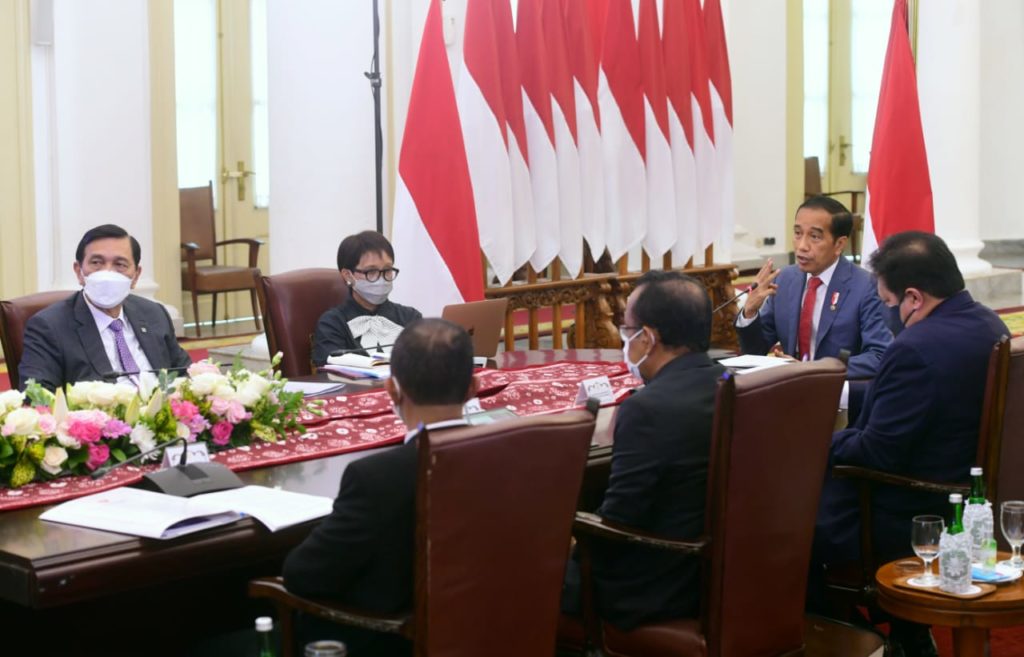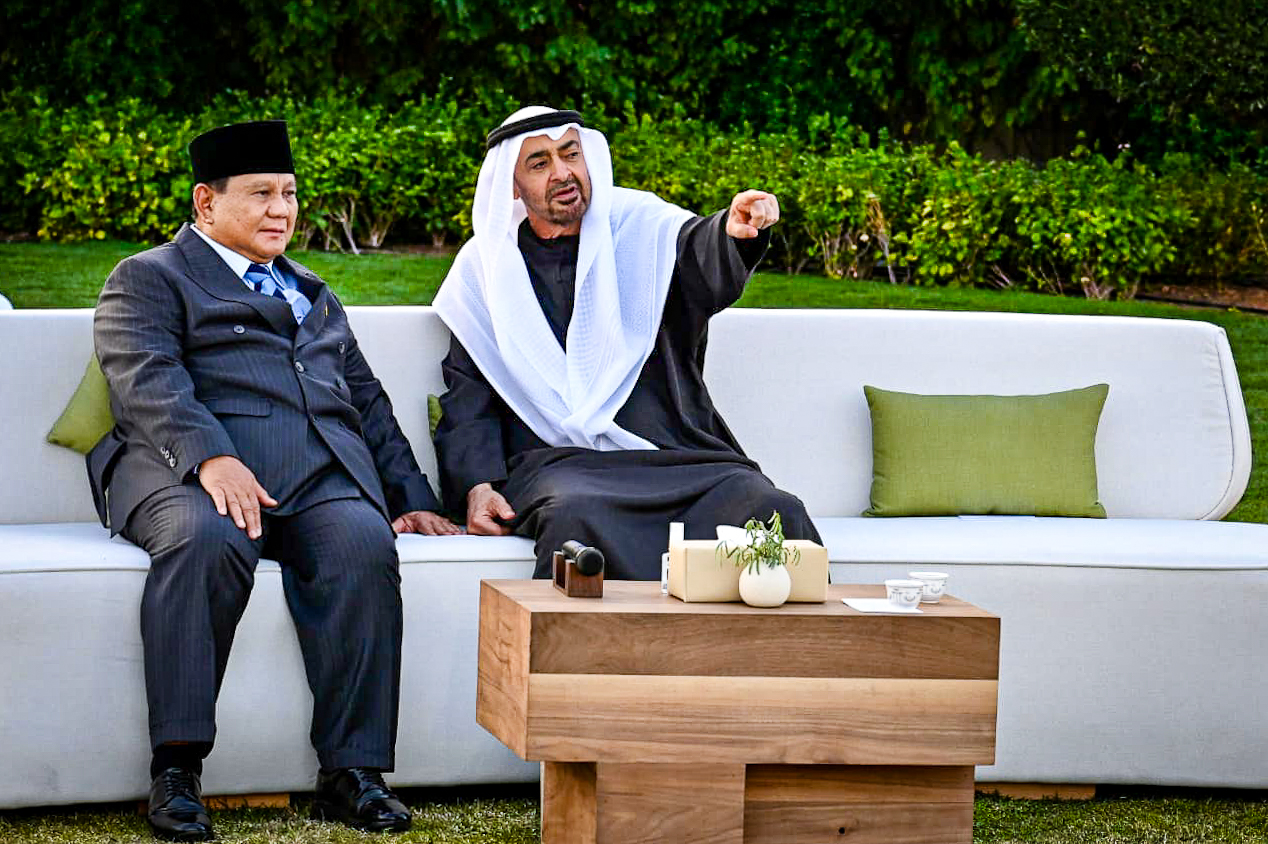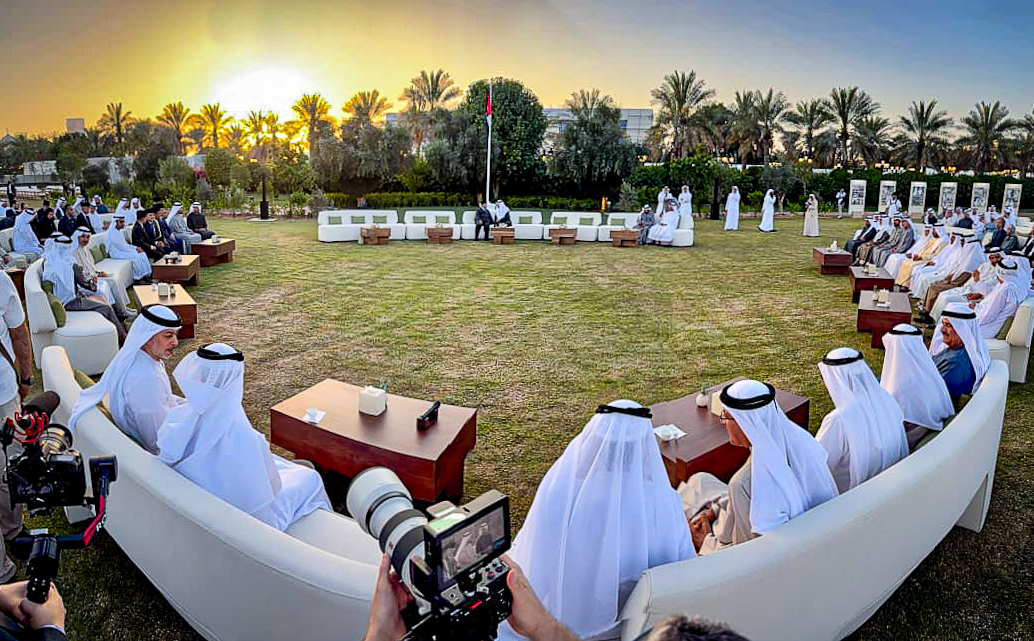President Jokowi Highlights Strategies to Kick-Start Green Economy

President Jokowi, accompanied by several ministers, attends the World Economic Forum (WEF) virtually from the Bogor Presidential Palace, West Java province, Thursday (01/20). (Photo by: BPMI of Presidential Secretariat/Muchlis Jr)
President Joko “Jokowi” Widodo underscored several policy strategies to kick-start a green economy.
“First, through low-carbon development as stated in the National Medium-Term Development Plan (RPJMN) for 2020-2024. The second is the net-zero emission policy. [We have] the issuance of a roadmap [by IEA] to achieve net-zero emissions by 2060. [Indonesia aims] for the forest and land-use sector to achieve net sink by 2030. Third, providing several green stimuli to encourage the increased realization of the green economy,” the President said virtually during a dialogue with Executive Chairman of the World Economic Forum Klaus Schwab at the World Economic Forum, Thursday (01/20).
The President also stated that environmental conservation and restoration efforts have been quite successful in recent years. According to him, the deforestation rate fell significantly to 75 percent in the 2019-2020 period, at 115,000 hectares.
In addition, forest fires have also decreased dramatically. The number of hotspots in 2021 reached 1,369 points, a far decrease from the 89,214 points in 2014. Likewise, these fires burned a land area of 229,000 hectares in 2021. In 2014, it reached 1.7 million hectares.
Peatland restoration, the President added, is faring well. From 2016 to 2021, 3.74 million hectares of peatland have been restored. In addition, mangrove rehabilitation is carried out on a large scale covering 50,000 hectares of land in 2020-2021.
“The 2024 target is 600,000 hectares, the largest in the world with four times the carbon absorption capacity of tropical forests, in fact, on belowground [biomass of] mangroves, it can reach 10-12 times,” he added.
The Government has prepared a conservation and restoration financing scheme through the establishment of the Environmental Fund Management Agency (BPDLH). The agency manages environmental funds sourced from within and outside the country with credible and accountable sustainable principles.
Furthermore, the Government also issued green sukuk, which is an innovative financing scheme to finance an environmentally friendly development agenda. The issuance of government bonds in the Environmental, Social, and Governance (ESG) category aims to broaden an investment base that is environmentally and socially responsible.
According to the President, the Government is also developing a mechanism of carbon economic value as an incentive for the private sector to achieve emission reductions. In addition, it will also implement climate budget tagging (CBT) in the State Budget and impose a carbon tax.
President Jokowi expressed belief that Indonesia has the potential to become a global market leader in the world carbon trading scheme. In fact, Indonesia is predicted to be able to beat the carbon trading potential of Peru, Kenya, and Brazil as fellow countries with the largest tropical forest area in the world.
“The carbon pricing in Indonesia is also relatively competitive compared to other carbon trading pioneer countries such as Brazil, Peru, and India,” he said.
For the record, Indonesia also has several REDD+ pilot projects with Result-Based Payment (RBP) schemes, such as the Green Climate Fund (GCF), the Forest Carbon Partnership Facility (FCPF), and the Bio Carbon Fund (BCF), with a total commitment value of around US$273.8 million. (FID/UN) (FI/MMB)








